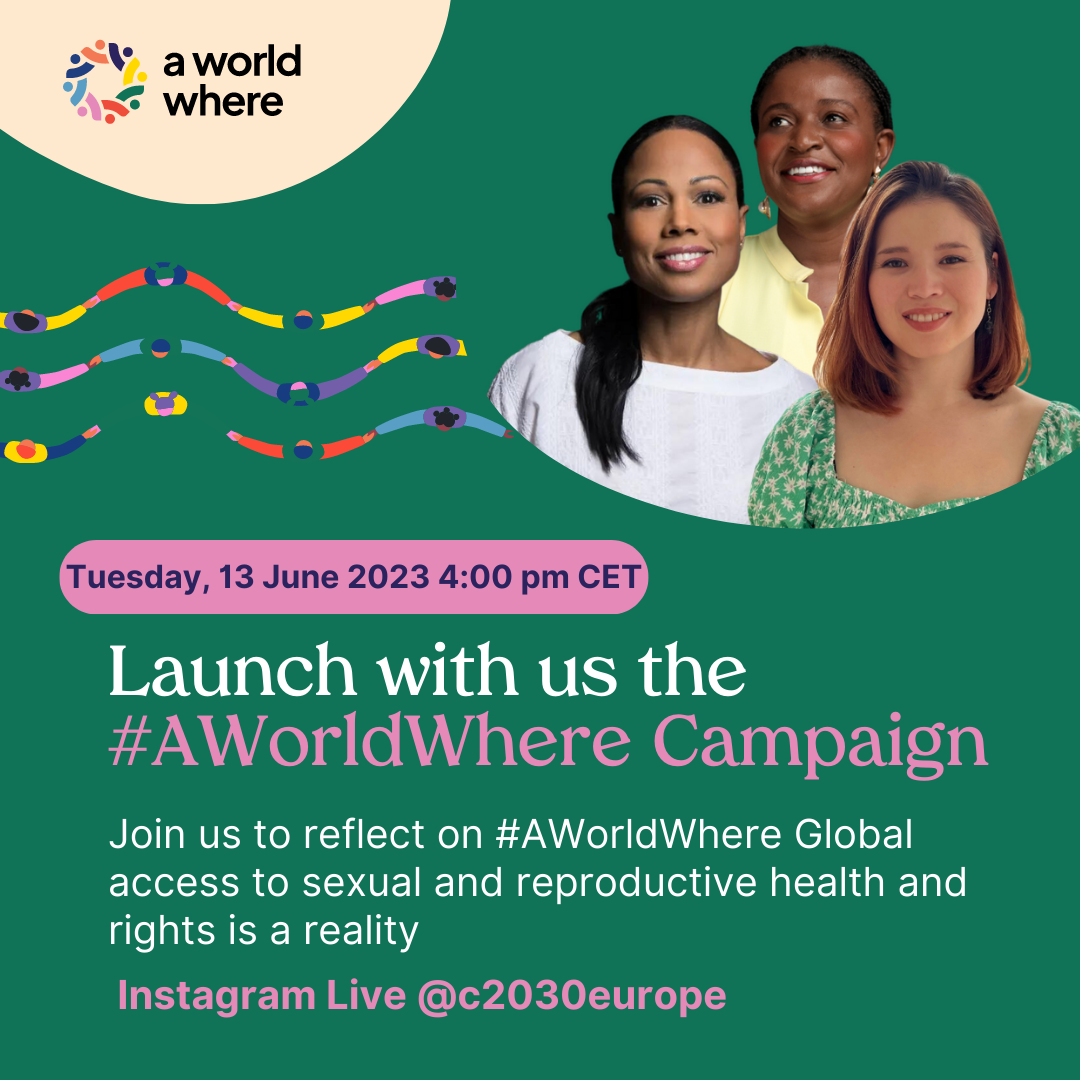European Week of Action for Girls provides a unique opportunity to bring girls’ rights to the forefront of the EU agenda. This year, European Week of Action partners put the spotlight on what needs to be done to overcome the barriers faced by girls all around the world, and to ensure that their rights are respected, protected and enforced. Held under the headline theme of girls’ empowerment, “Girls can…”, this year’s European Week of Action for Girls successfully demonstrated what girls can achieve when their rights are respected and protected. When they are protected, empowered and supported, girls can thrive, inspire and succeed.

Countdown 2030 Europe partners, IPPF EN, DSW International and the European Parliamentary Forum on Population & Development co-organised the week, which was supported by the European Commission (DevCo), and the UN. The week was kick-started by a series of events held by partners featuring a mix of youth activists from around the world and high-level EU politicians. Our objective was clear. To provide concrete, implementable recommendations for how to better protect and promote girls’ rights and empowerment through EU policies, practices and programmes so that they benefit the most marginalised and hardest to reach girls.
Marking the launch of this year’s edition of the European Week of Action for Girls, we organised our first ever “Girls’ Summit” in Brussels on October 11, coinciding with the Day of the Girl Child. The Summit brought together youth activists and politicians alike to demonstrate that “Girls can…” thrive, inspire and succeed. The event was opened by BBC journalist, Kim Chakanetsa, with active participation from youth activists and other speakers including:
- Aline Zeler, captain of the Belgian national women’s football team, the Belgian Red Flames
- Anissa Boujdaini, Belgian Slam Poet
- Irena Andrassy, Deputy Head of Cabinet, Commissioner Mimica
- Barbara Pesce Monteiro, Director of the UN/UNDP Brussels Representation Office

Through the active participation of these inspiring young activists, we raised awareness of the daily reality of girls across the world, particularly in the fields of protection from violence, recognition of sexual and reproductive health and rights, leadership, education and employment. Our youth activists highlighted the key role they themselves play as drivers of change and development, and the importance of engaging them in decisions which affect them.
The EU can and does play a leading role in creating a world which helps all girls realise their rights, through its policies, programmes and actions. Through the new European Consensus on Development, “Our World, our Dignity, our future”, the EU has recognised the positive role that girls and young women can play as agents of change and development. Yet, as this week demonstrates, the EU must do better, and do more to recognise the active role girls play in their communities and societies. They must also work harder to combat the discrimination faced by girls on a daily basis, to help them overcome obstacles and barriers so that they can thrive, inspire and succeed.

As mentioned on EuroNGOs here.



